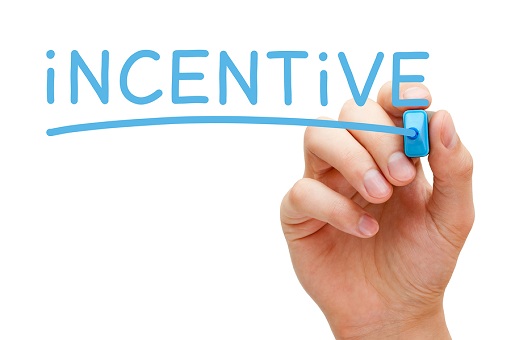
Usman Ghani (May 8, 2015)
Customer Service Representatives often feel demotivated and stressed because of the nature of their jobs. Creating incentives for staff members is essential to keep them motivated so that they can serve customers to the best of their abilities. Moreover, research has shown that happy and satisfied employees are more productive, which in turn boosts the performance of the company in form of higher profits and sales. A research conducted by Gallup titled, “Causal Impact of Employee Work Perceptions on the Bottom Line of Organizations” concluded that higher satisfaction levels among employees leads to higher efficiency. Creating incentives for customer service employees is also a welcoming initiative from the HR perspective, since a company must find ways to reward its employees who have been around for more than a few years to ensure a fair career progression. Companies can also offer incentives as a recognition for their exemplary performance and display of initiative. Businesses can use incentive as a tool to reinforce the behavior the company wants employees to reflect in their work ethic and temperament.
Creating incentives is one of most promising tools to reward and encourage better performance, in addition to effectively engaging CSRs to innovate and offer out-of-the-box solutions for customers. Long term business strategy must address employee incentive (monetary and non-monetary). Some of the ways companies can create incentive for customer service employees are as follows:
One of the most prominent emerging trend in the corporate world includes profit sharing and business partnership. Employees are offered a share from the total profits the business earns, in addition to part ownership in form of company shares or partnership deals. A UK based, chain of department stores, John Lewis, has successfully embraced the idea of partnering with the employees of the company. John Lewis is one of the leading retail stores in UK, which operates under a unique employee-owned partnership model. While conventional listed companies appropriate profits to the shareholders, John Lewis distributed profits among its employees in the form of an annual bonus.
A similar model can be adopted in order to create incentives for customer service staff, so that their performance is top-notch since they stand to directly benefit if the company does well. Alternatively, company shares could be offered as a form of reward for good performance which will not only act as a monetary incentive, but will encourage workers to give their best since they would have stakes in the company.
Education and training can be offered to customer service staff which will help them enhance their knowledge and skills. Education is a strong incentive for many career-oriented employees who wish to grow and rise up the organizational hierarchy. Any education or training the company offers to the customer service staff will help build the profile of the individual, which can prove to be an invaluable asset.
Educational incentives can be offered to employees in form of undergraduate or postgraduate degrees, which can be undertaken part-time so that the employees can keep working with the company while they complete their degrees. Financial cost is one aspect of facilitating education, since most workers won’t be able to afford the high tuitions. Another dilemma workers face when planning their degree is the time they would have to take off work and lose the income. Companies could develop a flexible schedule and allow them some time off so that they can also pursue their education.
Companies should organize training workshops which offer learning opportunities in the areas of time management, multitasking, leadership, empowerment and improving productivity. These workshops should come with official certification and recognition.
One of the main responsibilities of managers is to recognize and acknowledge good performance by the employees. It is important for the self-esteem of workers and managers must communicate and discuss the performance of the employees to keep them motivated. Even if the performance is not up to mark, managers need to offer constructive feedback instead of harsh reprimands.
Recognition must be reflected through appropriate actions. Many companies choose “Employee of the Month” and issue certificates. The employee of the month could also be given a “performance bonus” or sent on a weekend vacation to a holiday resort with his/her family. Recognizing employees through monetary and non-monetary rewards is a great way to incentivize them.

Healthcare workers are entrusted with the great responsibility of caring for people. In order to continually offer comfort and care to people, there are certain skills that healthcare professionals need to master. Of course there are the obvious ones related...
Read More
Creative thinking is one of the most important and sought after soft skills that you need to acquire in an increasingly digital landscape of 2021 and beyond. Creative thinking skills are required in many different job roles to come up...
Read More
Sales are the backbone of any business and great salespeople are an asset for the company. Some people are naturally gifted in the art of persuasive communication and negotiation skills required to convince clients and effectively sell more. However, certain...
Read More